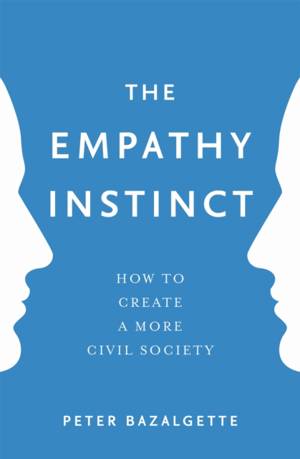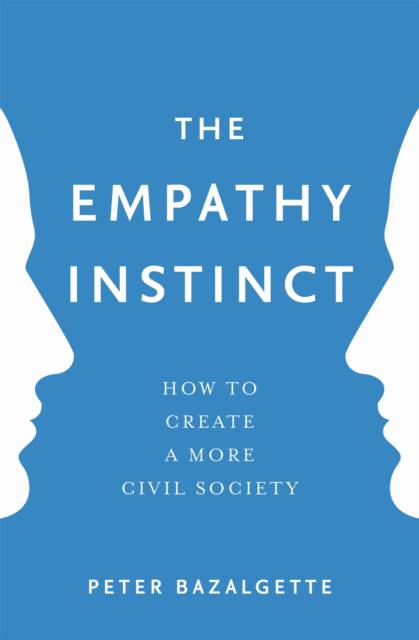
- Afhalen na 1 uur in een winkel met voorraad
- Gratis thuislevering in België vanaf € 30
- Ruim aanbod met 7 miljoen producten
- Afhalen na 1 uur in een winkel met voorraad
- Gratis thuislevering in België vanaf € 30
- Ruim aanbod met 7 miljoen producten
Zoeken
Omschrijving
'If we hope to meet the moral test of our times, then I think we're going to have to talk more about the "empathy deficit". The ability to put ourselves in somebody else's shoes, to see the world through somebody else's eyes . . .' Barack Obama Empathy is the power of understanding others, imaginatively entering into their feelings. It is a fundamental human attribute, without which mutually co-operative societies cannot function. In a revolutionary development, we now know who has it, who lacks it and why. Via the MRI scanner we are mapping the human brain. This is a new frontier that reveals a host of beneficial ideas for childcare, teens challenged by the internet, the justice system, decent healthcare, tackling racism and resolving conflicts. In this wide-ranging and accessible book full of entertaining stories that are underlined by the latest scientific research, Peter Bazalgette also mounts a passionate defence of arts and popular culture as a means of bridging the empathy gap. As the world's population expands, consuming the planet's finite resources, as people haunted by poverty and war are on the move and as digital communications infinitely complicate our social interactions, we find our patience and our sympathy constantly challenged. Here is the antidote. Culminating in a passionate manifesto on empathy, The Empathy Instinct is what makes us human and what can make us better humans.
Specificaties
Betrokkenen
- Auteur(s):
- Uitgeverij:
Inhoud
- Aantal bladzijden:
- 384
- Taal:
- Engels
Eigenschappen
- Productcode (EAN):
- 9781473637535
- Verschijningsdatum:
- 22/10/2019
- Uitvoering:
- Paperback
- Formaat:
- Trade paperback (VS)
- Afmetingen:
- 130 mm x 196 mm
- Gewicht:
- 612 g

Alleen bij Standaard Boekhandel
+ 30 punten op je klantenkaart van Standaard Boekhandel
Beoordelingen
We publiceren alleen reviews die voldoen aan de voorwaarden voor reviews. Bekijk onze voorwaarden voor reviews.











